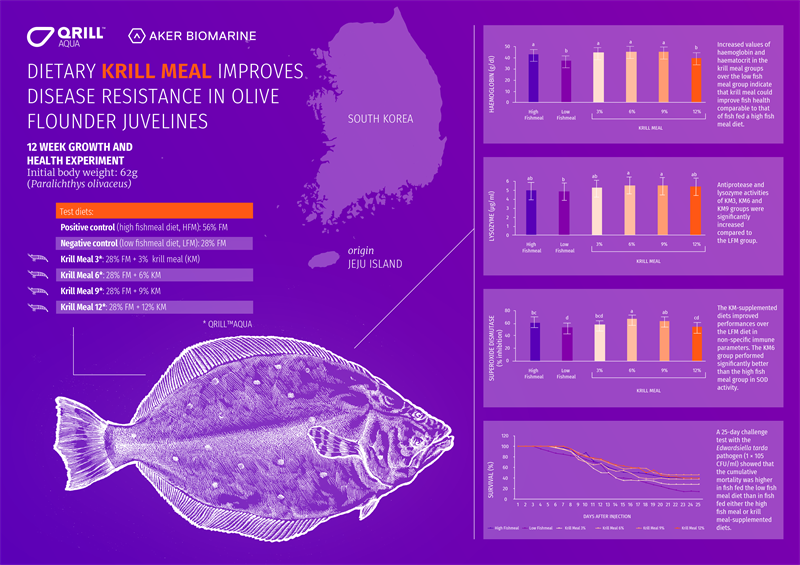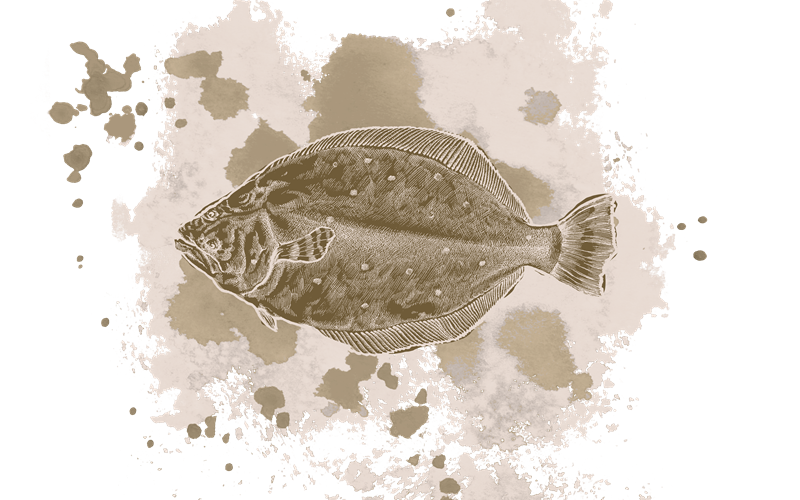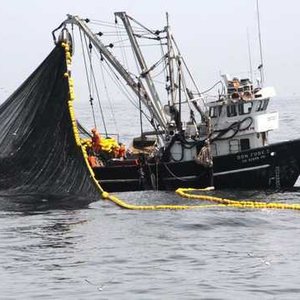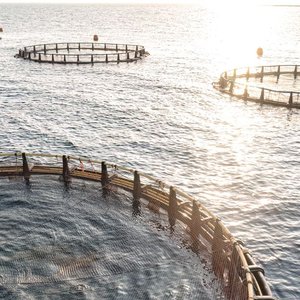Researchers from South Korean Jeju National University’s Department of Marine Life Sciences recently published their findings on the effects of krill (Euphausia superba) in fishmeal diets given to olive flounder (Paralichthys olivaceus). The objective of their study was to examine the response of the fish to different levels of krill added to a low fishmeal diet (28% inclusion of fishmeal).
“Over the years, researchers have conducted several studies on the benefits of krill as a part of the diets of various species of fish, all with positive effects on the species. This study looked at olive flounder, which is one of the most important fish species in South Korea, accounting for approximately 50% of the total finfish production,” said Tibian Benitez-Santana, director R&D, Fish Nutrition at Aker BioMarine.
A total of 792 olive flounder were randomly distributed into 24 tanks. The researchers tested diets that included varying percentages of krill (3%, 6%, 9% and 12%). There were four groups of olive flounder that were testing each of the diets over a course of 12 weeks. At the end of the 12-week trial, fish from each tank were randomly selected for analysis on the effects of the diet. These effects were compared to those from olive flounder consuming high fishmeal and low fishmeal diets.
The researchers concluded that partial inclusion of krill meal improved the growth performance and feed utilization of olive flounder, confirming the findings from earlier research on krill supplementation among other fish species. Also, olive flounder fed with dietary krill meal showed considerably higher survival against E. tarda pathogen, a well-known bacterium in the Asian feed industry.
“Our results indicate that krill meal supplementation in a low fishmeal diet can increase growth, feed utilization efficiency, diet digestibility, intestinal development and functions, innate immunity and disease resistance of olive flounder. Our recommended level of krill inclusion following this experiment is between 6-9% krill meal when the fishmeal feed inclusion is low,” said Kyeong-Jun Lee, Professor, Ph.D., Department of Marine Life Sciences, Jeju National University in South Korea.
Key findings from krill meal supplementation in the olive flounder diet:
- Growth performance and feed utilization efficiency improved.
- Digestibility of dietary protein and dry matter was increased by the krill meal 3% - 9% diets.
- Hematocrit and hemoglobin were increased.
- The innate immunity and the condition factor of the fish were improved across krill meal 3%-9% diets.
- Goblet cell counts, villi length and fillet yield of the fish were improved by all krill meal diets.
- Cumulative mortality was lower in fish fed the krill meal diet or the high fishmeal diet.

The study, titled “Evaluation of krill meal supplementation in diets for olive flounder”, was authored by Kyeong-Jun Lee, Kasun Tharaka, Tibian Benitez-Santana, Buddhi Eranga Gunathilaka, Min-Gi Kim, Chorong Lee, and Jaehyeong Shin. The full manuscript is available upon request.













